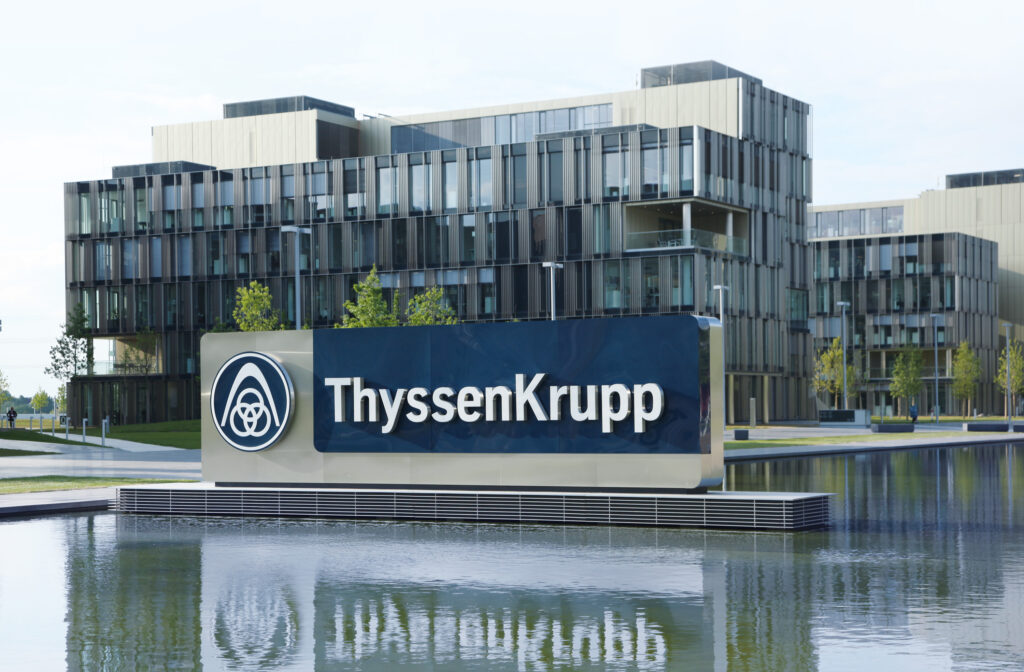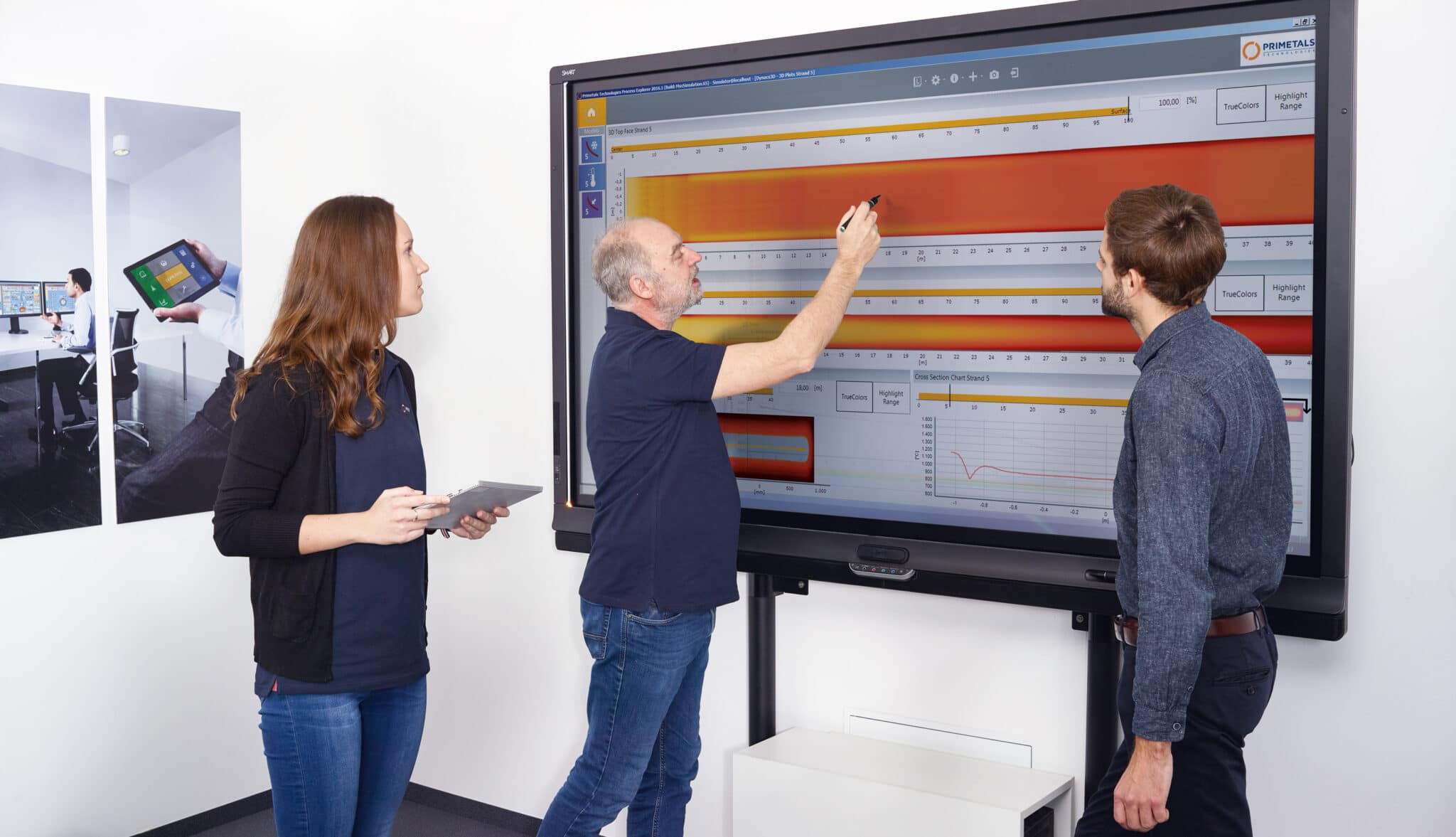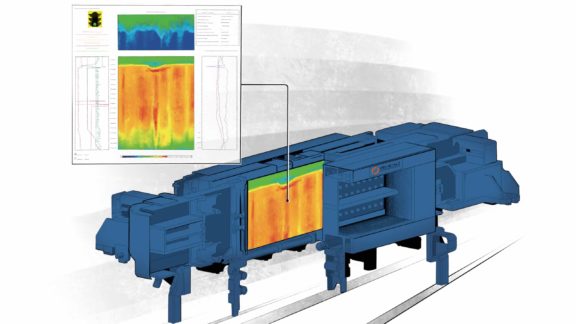The steel industry is well on its way toward fully automated continuous casting, which is going to minimize the risk of human error and increase workplace safety considerably. Meanwhile, tried and tested automation products from Primetals Technologies provide sophisticated opportunities for optimizing and monitoring the casting process, while their pioneering component-based architecture offers a high degree of flexibility.
Maintenance and simulation
Primetals Technologies provides an all-in-one setup, testing, and maintenance tool as an integral part of the Continuous Casting Optimization package. The “Maintenance and Simulation System” (MSS) facilitates the maintenance of parameters and configurations for the automation system, including the process model suite Dyna-Phase, Dynacs 3D, and DynaGap Soft Reduction, described in more detail on pages 62-63. The MSS thus supports metallurgists in their daily work and enables them to enter the machine geometry, cooling requirements, and formulas describing water distribution and heat removal for each cooling loop, radiation, roll-heat removal, mold-heat removal, and natural convection. It also comprises the following additional functions:
- Software deployment, configuration, start, stop, restart, and the ongoing supervision and troubleshooting of caster optimization processes
- Online checks of basic automation data and an overwrite function for emergencies
- Long-term monitoring of basic automation data consistency during cold testing or parallel runs with legacy systems
At its plant in Duisburg-Beeckerwerth, Germany, thyssenkrupp Steel Europe (TKSE) operates two slab casters that were upgraded with the advanced process models from Primetals Technologies. The upgrade also included an installation of the Maintenance and Simulation System (MSS). This allowed experts from Primetals Technologies to perform offline casting simulations by means of a remote connection, minimizing the impact on ongoing production and limiting the team’s presence on site. This led to remarkable results as early as during the commissioning phase: Working offline, the Dynacs 3D secondary cooling model was able to identify uneven spray-water distribution in two cooling zones of the strand. Simulations with new nozzle types performed in the MSS promised significant improvements—which fully materialized in the form of superior slab- surface quality shortly afterward, when the changes were actually introduced in production.

A “digital twin” of real-world equipment
The simulation part of the MSS provides the functionality necessary for testing parameter changes and training operators in an offline environment in order to achieve smooth system start-ups. It creates a virtual instance of the actual plant facility—a “digital twin” of real-world equipment. This allows engineers to run extensive simulations of new equipment or parameter changes before they are introduced to the actual casting process. It eliminates any disruptions in ongoing production and minimizes the risk of unexpected outcomes. Using predefined script files, it facilitates tests of various casting scenarios and can replay past events. The digital twin also allows for stress tests in order to predict the long-term effects of any modifications.

Interview with
Daniel Fuchshuber
Daniel Fuchshuber is Head of Process Optimization, Continuous Casting at Primetals Technologies.
Which types of plants benefit the most from the kinds of “digital twin” offline simulations that the MSS makes possible?
Fuchshuber: I think plants that are trying to extend their product range to special alloyed steel grades and need to invest in new or upgraded equipment benefit the most. It is invaluable to be able to simulate the outcome of these modifications in detail beforehand and plan investments accordingly.
Where do you see the most potential for future developments in the digitalization of casting?
Fuchshuber: Currently, I see two trends: autonomous casting and data analytics. Modern casting machines incorporate very complex systems that require vast knowledge to operate correctly. To achieve the best quality, an automation system needs to assess the current casting situation and take the correct actions autonomously. Long-term data analytics based on collected production data gives steel producers the foundation to identify areas for improvement.
Do you see artificial intelligence and machine learning playing a big role in the mid-term?
Fuchshuber: Long-term data analytics will become very important, but these analyses are very complex and time-consuming, and require extensive know-how. By incorporating machine learning into analytical methods, we are creating tools for the plant operators to interpret their data in a feasible way.

